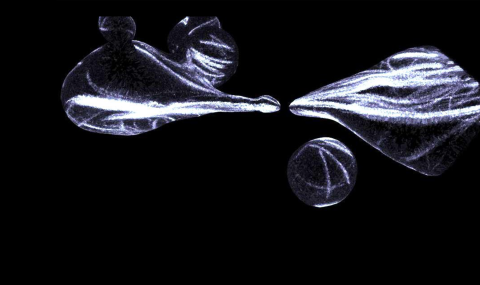Cells are noisy, crowded, and constantly burning energy, but they still manage to organize DNA, cytoskeleton, and condensates with remarkable precision. Our lab wants to uncover the physical rules that make this kind of dynamic order possible.
We build microtubule-based active matter, where motor proteins drive filament motion and generate a rich array of flow modes. By tuning activity through enzymatic and genetic control, we map how different flow patterns emerge and how they sculpt structure across length scales.
We recently discovered a new, activity-driven phase transition in DNA, showing how mechanical stresses can reorganize genetic material into distinct states. In parallel, we reconstitute liquid-liquid phase-separated (LLPS) condensates in vitro, together with cytoskeletal networks, to investigate how cytoskeletal forces influence their morphology, dynamics, and “cell-like” behavior.
By combining these systems, we connect molecular activity, emergent flows, and phase transitions to the ways cells organize genomes and compartments in space and time.


